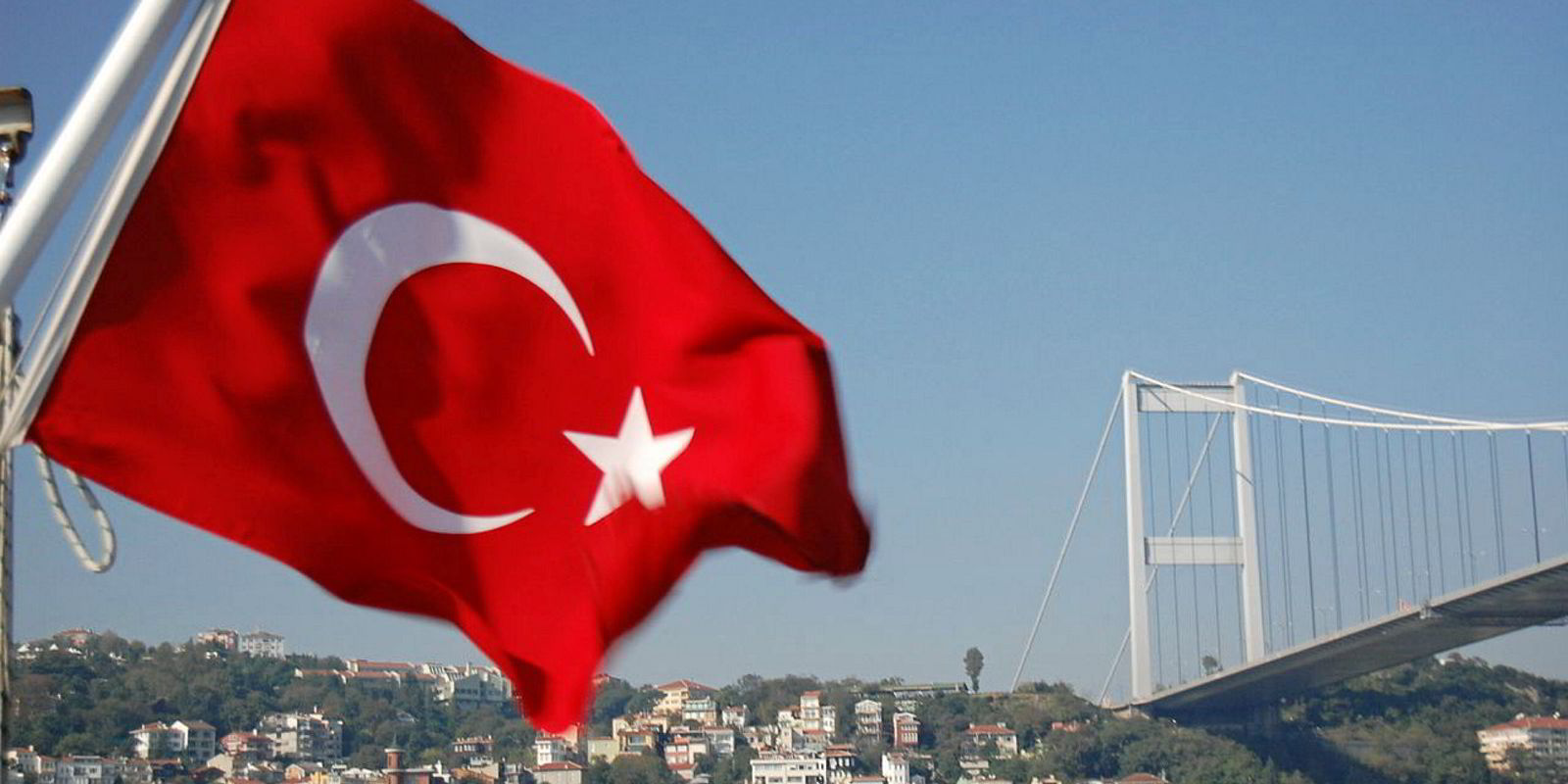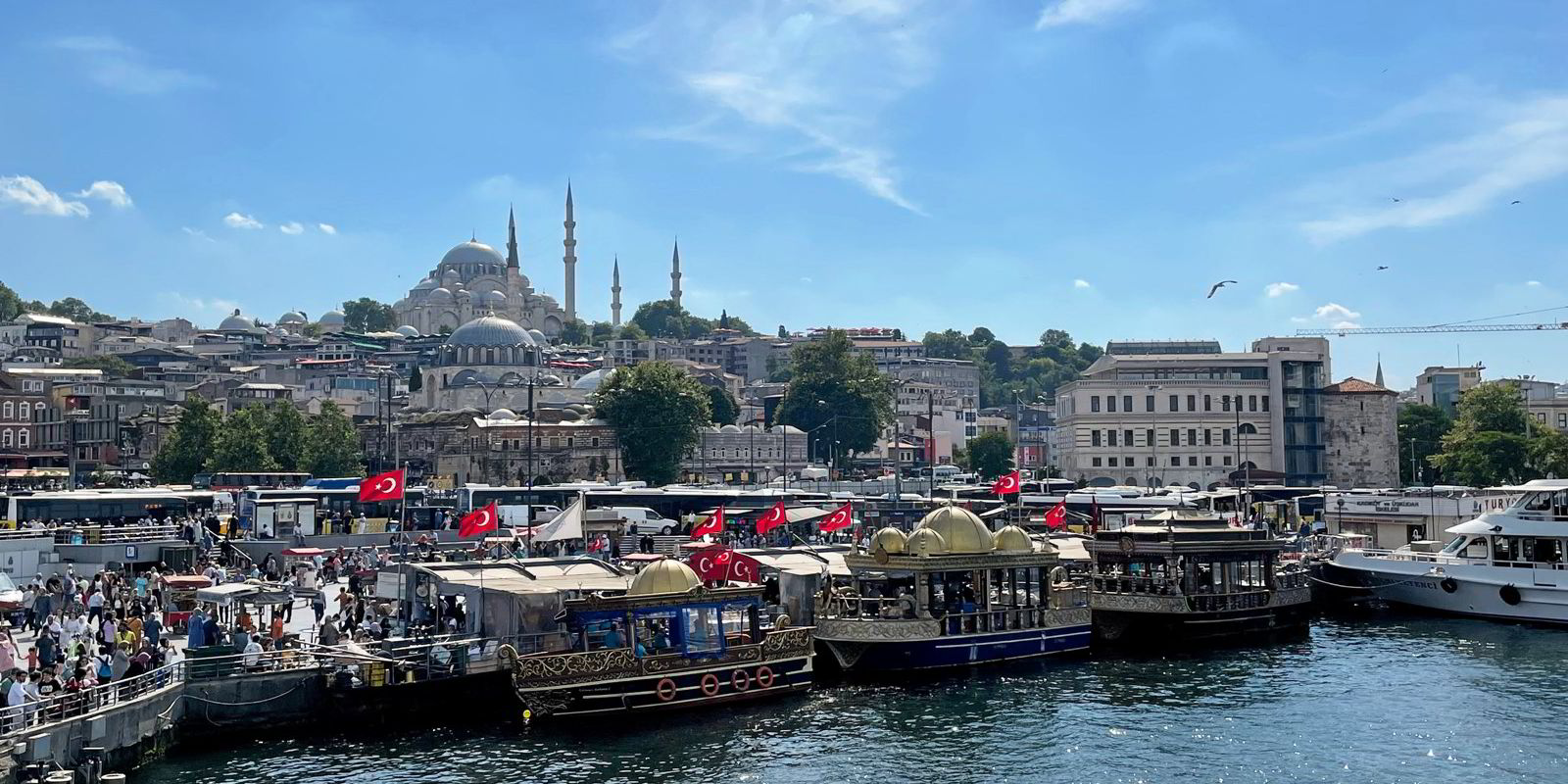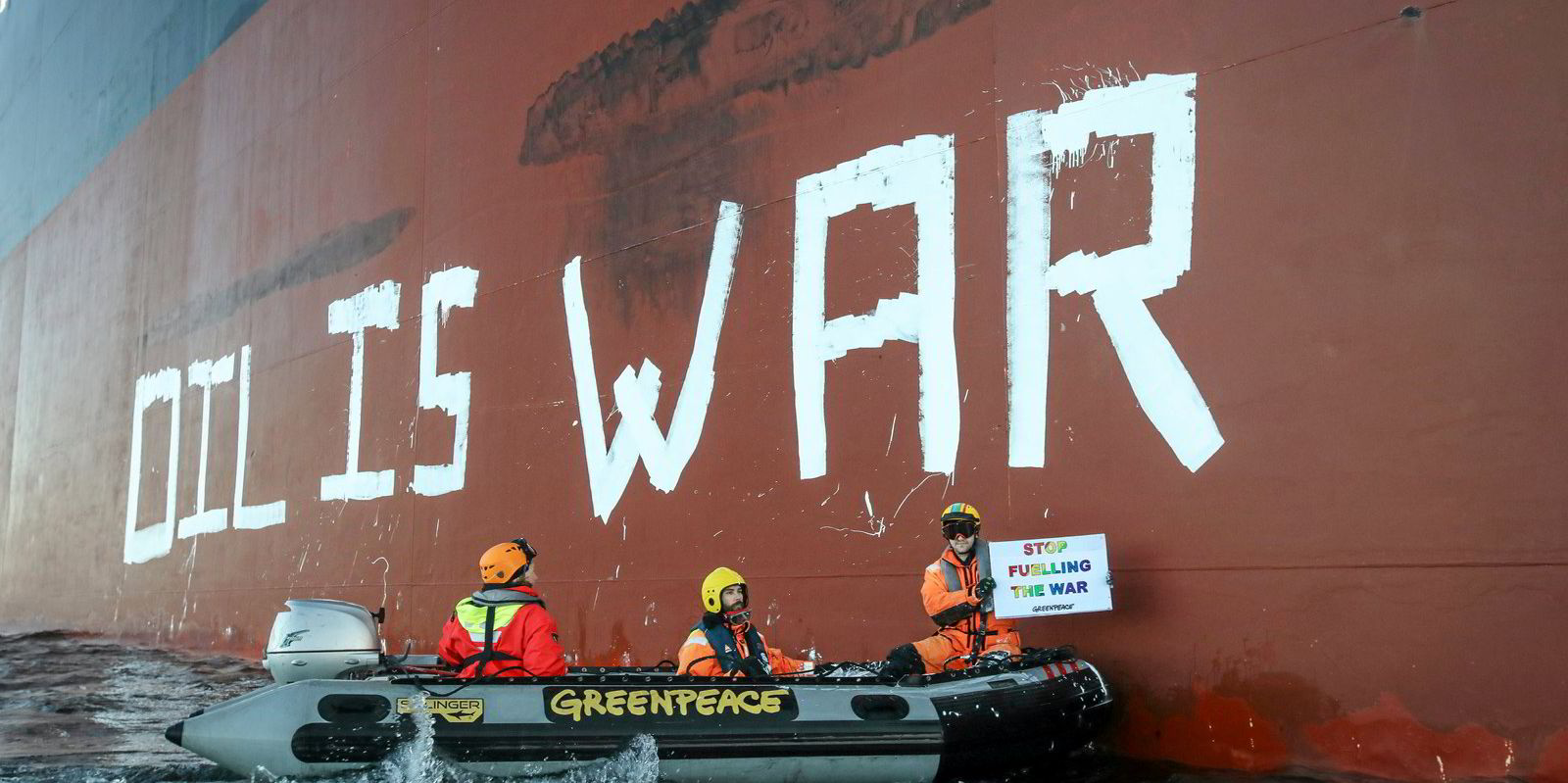Tanker owners with protection and indemnity cover placed with the International Group of P&I Clubs are banging the desks in anger because their transit through the Bosphorus is being delayed by insurers’ refusal to provide written guarantees to the Turkish authorities.
The International Group’s 13 member clubs are declining Turkey’s request that they provide a letter guaranteeing cover will be provided to shipowners “under any circumstances” during the duration of the transit through the Bosphorus.
There is a growing backlog of tankers waiting to transit.
The Turkish demand comes as the price cap sanctions enter into force, requiring insurers to withdraw cover from ships carrying Russian crude exports priced at more than $60 per barrel.
Turkey, as might be expected, is nervous that it will be exposed to an environmental disaster in the Bosphorus for which there will be no cover, or vital technical assistance, available.
The International Group member clubs are unrivalled experts in handling marine pollution claims.
The Bosphorus, which divides Europe and Asia, is not only a congested waterway but one in which the environmental consequences of an oil spill could be disastrous.
But it is not insurers that should be the focus of shipowners’ fury.
Western governments cannot have it both ways, insisting that P&I clubs withdraw cover from any party breaching the price cap, without taking into account the risk to coastal states of a major casualty and pollution incident involving an uninsured tanker.
By using P&I clubs as a frontline sanctions weapon, the G7 and others supporting the price cap were always going to run the risk of seeing an increasing number of uninsured tankers — or tankers with insurance cover from shady operators that is not worth the paper it is written on.
It is unclear what measures were discussed for handling a tanker spill involving oil purchased above the price cap before the sanctions were rubber-stamped.
Dangers spelt out

The dangers were certainly clearly spelt out by the International Group in its discussions with governments.
But it does not look as though sufficient consideration was given to the issue, judging by Turkey’s demands.
The P&I clubs want to support sanctions that disrupt Russian President Vladimir Putin’s war effort in Ukraine, but they are privately fuming over the way they have been dragged from pillar to post by governments over the matter.
They rightly claim it is impossible for any insurer to meet Turkey’s demands and provide guarantees that claims will be met, when every payment is always assessed on its merits after the event.
It is doubly difficult to guarantee to meet claims when to do so could potentially put the clubs in breach of international sanctions.
As the International Group pointed out, the Turkish demand “requires a P&I club to confirm that cover will not be prejudiced under any circumstances, including where there is a sanctions breach on the part of the assured, whether knowingly and intentionally or unknowingly and unintentionally”.
TradeWinds has earlier reported how the dark fleet, which is operating in the illicit oil trades, is reliant on old vessels with non-International Association of Classification Societies certification and dubious insurance cover.
A number of P&I insurers are now emerging, which are providing cover to the dark fleet. They may claim to have reinsurance in the London market, but it is unlikely any London reinsurer will be prepared to pay out on a claim involving a sanctions breach.
And it must be galling for responsible tanker owners to see third-rate insurers issuing letters of guarantee to Turkey, allowing high-risk tankers to sail through the Bosphorus despite the potential hazards.
Talks have reopened between the International Group, Turkey and the G7 to try to solve the impasse. Governments need to find a way to make the sanctions work while protecting the environment from oil pollution catastrophe.





